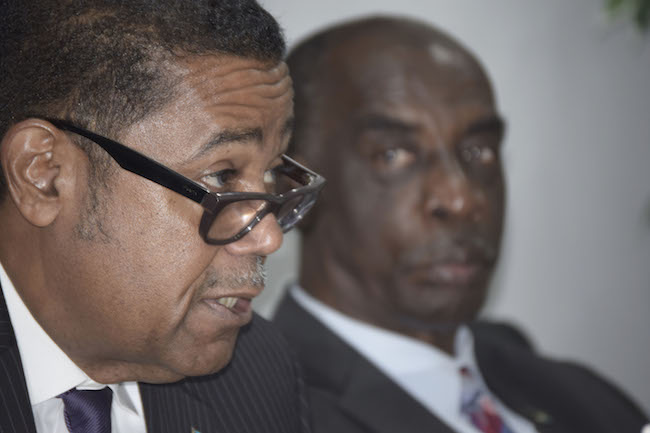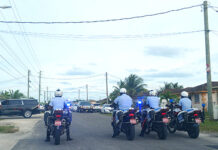
NASSAU, Bahamas, Aug. 23, 2016 (GLOBE NEWSWIRE) — The Bahamas Ministry of Health advised today that there are three new confirmed cases of the Zika virus on the island of New Providence, but noted that the country remains a “safe place to travel”.
Health officials noted that only one island in The Bahamas, New Providence, currently has Zika.
The Bahamas is an archipelago made up of 700 islands and cays. No other cases of Zika have been confirmed on any otherislands in The Bahamas. Tourism industry partners have intensified preventative efforts.
Bahamas Minister of Health Dr. Perry Gomez said the ministry is “intensely monitoring the situation” with an active surveillance program. Dr. Gomez added that fogging has intensified on New Providence; however, officials said that based on the statistics of suspected cases, fogging has been intensified in the Pinewood Gardens and Carmichael, the southern most areas of New Providence.
Director of Health Dr. Pearl McMillian noted that the country is taking every precaution regarding Zika.
“We in The Bahamas take it seriously and we are seeking to ensure that we put in place the necessary measures as it relates to mosquito control and prevention across the entire island of New Providence,” she said.
“I would still recommend that they (visitors) use mosquito repellants as they travel around but we are pretty safe to continue to visit.”
Minister of Tourism Obie Wilchcombe said that the ministry is taking this latest update very seriously and continues to work with industry partners to ensure visitor safely.
“We want travelers to know that The Bahamas continues to be a safe destination. We have a lot of confidence in the work the Ministry of Health is doing to manage Zika and mitigate further cases.”
Health Minister Dr. Perry Gomez said this brings the total number of Zika cases in The Bahamas to four.
The first case was confirmed on August 10.
Regarding the new cases, he said, “All patients have been treated for associated symptoms and are doing well.
“Based on the histories received from the cases, it has been determined that there is a mix of travel associated and local transmission.”
Gomez said two cases were contracted because of travel to a Zika infected country and two cases were contracted on New Providence.
The Zika virus is transmitted primarily through the bite of the aedes aegypti mosquito. However, the virus is also spread from mother to baby during pregnancy and during sexual intercourse.
Health Officials advise anyone travelling to The Bahamas who feel they may have symptoms of the virus to contact the National Disease Surveillance Unit at 502-4776, 502-4790, 376-3809 or 376-4705.
Visitors to The Bahamas receive educational pamphlets about the virus at all ports of entry. The pamphlet includes symptoms, prevention tips and contact information for the Ministry of Health.
Hotels and guest properties throughout The Islands of The Bahamas are also continuing their proactive measures.
Proactive measures include:
* Providing staff and guests with information on Zika so that they are aware of the signs and symptoms, how Zika is transmitted and how it can be prevented.
* Having insect repellant available to visitors.
* Avoiding storing water in outdoor containers to prevent them from becoming mosquito-breeding sites.
* Covering water tanks or reservoirs so that mosquitoes do not get in.
* Avoiding the build-up of garbage, which can act as a breeding site for mosquitoes. Putting garbage in closed plastic bags and keep it in closed containers.
* Uncovering and unblocking gutters and drains to release stagnant water.
All travelers are advised to:
* Stay informed about the Zika situation in countries they are travelling to.
* Use insect repellents on exposed skin. Insect repellents that contain DEET, Picaridin, oil of lemon eucalyptus (OLE) or IR3535 are the most effective and safe when used according to the label. If also using sunscreen, apply sunscreen first and insect repellent second.
* Where possible, wear light colored long-sleeved shirts and long pants, socks and shoes to minimize exposed skin.
* When indoors use air conditioning and keep the doors and windows closed, unless they are screened, to keep out mosquitoes. If this is not possible, sleep under mosquito nets to prevent bites.
What should you do if you feel sick and think you may have Zika?
* Consult a healthcare professional if you are feeling ill, especially if you have a fever. If you have returned home, make sure to tell them about your travel.
* Use acetaminophen or paracetamol to treat fever and pain.
Get lots of rest and drink plenty of liquids.
* A person infected with Zika will have the virus in their blood for the first week of infection. The virus can be passed on to other mosquitoes if they bite you while you are carrying the virus. Therefore, be especially careful to prevent mosquito bites during the first week to avoid spreading the disease.
Travelers are encouraged to visit Bahamas.com for any updates on Zika.







